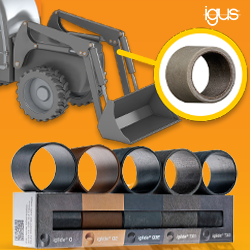FLIR Unveils ADGiLE to Detect and Locate Methane Leaks with Robust Continuous Monitoring and Advanced Analytics
Automated Methane Monitoring Solution with OGI by FLIR delivers 24/7 Coverage of Methane Production, Transmission and Storage Infrastructure
FLIR, part of Teledyne Technologies Incorporated, today unveiled ADGiLE™, a fixed-mounted methane monitoring solution. Featuring optical gas imaging (OGI) with comprehensive edge detection analytics, ADGiLE is the oil and gas industry's solution to meeting environmental stewardship and efficiency goals. The system, featuring a pan-tilt gas imaging camera, edge computing device, connectivity, and FLIR United VMS software within a ruggedized package, can help companies address the ever-evolving requirements for reducing methane gas leaks within oil and gas production, transmission, and storage infrastructure.
Designed for wide-scale site video monitoring and continuous leak detection applied to storage tanks, compressors, separators and many other equipment in the oil and gas industry, ADGiLE offers an industry-first, end-to-end fixed methane detection solution that leverages FLIR's uncooled GF77a OGI technology, and is consequential to industry demands concerning methane mitigation.
FLIR ADGiLE pairs the GF77a with platform analytics processed at the edge to detect emissions through automatic early detection, quickly pinpointing the leak source. It provides the critical situational awareness on the emission event that isn't possible with other methane detection technologies, such as satellite and aerial-based detection methods. Data is displayed via the FLIR United VMS software back at the control room, which can be configured with custom alerts, areas of interest, and pre-set imaging pathways for a truly automated experience.
The solution primarily focuses on midstream and high-concentration methane upstream applications. It works to detect and prevent high volume emission events, compared to FLIR's existing cooled handheld OGI technology, leveraging FLIR's unmatched edge detection analytics built upon decades of detection data and experience to deliver consistent, accurate results. The system increases both site efficiency and safety, as it operates equally well during the day and in total darkness at safe distances, pending atmospheric and site conditions.
"The industry knows FLIR as the world leader in handheld OGI detection, and now they can access lower cost technology via a completely automated, fixed solution with ADGiLE, featuring everything they need out of the box to quickly pinpoint and then fix large methane leaks," said Craig O'Neill, Business Development Director, FLIR. "ADGiLE is purpose-built for mid- and upstream methane operations to deliver game-changing results to achieve methane mitigation demands along with internal emission reduction goals. This makes ADGiLE a market leading solution for well site operators, compressor stations, and storage facilities that must invest in methane detection and monitoring technologies."
FLIR ADGiLE uniquely meets the most serious methane leak detection challenges while providing operational insight to understand emissions that are a part of routine industry processes versus fugitive emission events. The system can also help prevent false readings, saving time and resources by avoiding the need to manually investigate and confirm specific leaks. At the same time, it can still detect intermittent leaks that happen and are too often missed by deployed aerial detection technologies using a wider temporal frequency. It can generate situational awareness that addresses the full range of challenges stemming from various methane emission scenarios.
For more information, visit https://www.flir.com/products/adgile/.
Featured Product

